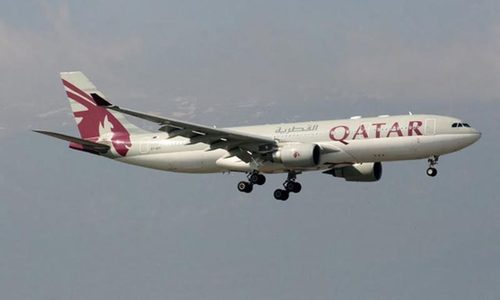A SERIES of bizarre events has been unfolding in the Arabian Peninsula over the past few days.
On Monday, led by Saudi Arabia, a number of Gulf and Arab states cut ties with the tiny but gas-rich emirate of Qatar over what they said was Doha’s support for ‘terrorism’.
This is an unprecedented move in the history of the over three-decade-old Gulf Cooperation Council.
The charges of Qatar’s support for ‘terrorism’ have generated some debate: the emirate has angrily been accused by Riyadh and its allies of supporting a wide variety of actors, from terrorist outfits such as the militant Islamic State group and Al Qaeda, to the Muslim Brotherhood, to Shia militants in eastern Saudi Arabia.
While the Kuwaiti emir travelled to Saudi Arabia on Tuesday to try and mediate, it was unclear at the time of writing what the outcome would be, especially with US President Donald Trump stepping into the fray.
The intra-Gulf tensions have emerged barely a few weeks after the Saudi rulers gathered a number of Muslim rulers in Riyadh and — with Mr Trump as guest of honour — lectured the world of Islam about the need for forging unity within the ranks, along with isolating Iran.
The events of the past few days have proved that the edifice Riyadh was trying to build was nothing but a mirage.
The truth is that apart from the Saudi-Iranian rivalry, geopolitical differences between other Muslim states make unity a far-fetched dream. Saudi Arabia has long considered itself the head of the Arab and Muslim fraternity.
After the fall of Nasser in Egypt, Riyadh felt it was the sole champion of the Arab and Muslim worlds. However, in the decades since, others have emerged to challenge this narrative. Post-1979 Iran, for example, has staked its claim as a major actor in the Muslim world, while Qatar, in the past few years, has been accused of punching above its weight, as it has expanded its influence through broadcaster Al Jazeera as well as its support for the Muslim Brotherhood.
Perhaps at the core of this spat is the desire for power and influence: the Saudis and Emiratis have not been happy with Qatar’s foreign policy, and this seemed the ‘right’ time to cut Doha down to size.
As for the accusation that Qatar has sponsored terrorism, while the emirate has been blamed for backing extremists in Syria, it is also true that the Saudis themselves have a complex relationship with Salafist militancy.
If there are genuine concerns regarding Qatar’s alleged role in promoting militancy, these should have been discussed through diplomatic channels.
Pakistan, which has cordial relations with both Riyadh and Doha and has hundreds of thousands of workers living in these states, must also tread a very fine line: relations with both the Saudis and Qataris must be maintained, while this country must not be dragged into any internecine Arab conflict.
Published in Dawn, June 7th, 2017














































